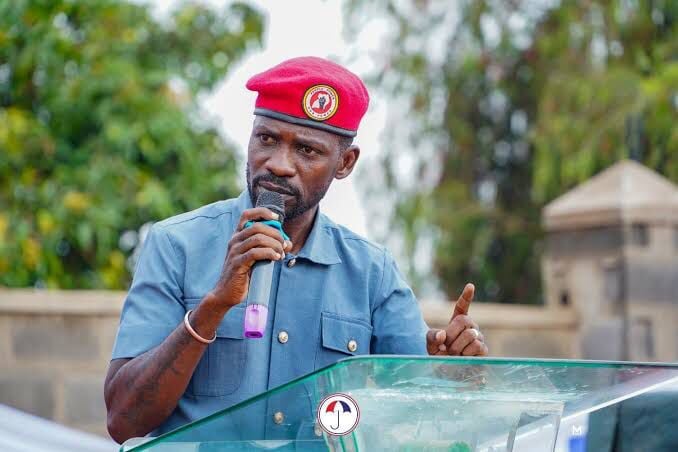Ugandan opposition leader and popular politician Robert Kyagulanyi, widely known as Bobi Wine, has spoken out strongly following the reported abduction of a sitting member of parliament. He described the incident as a clear sign of what he calls the growing abuse of power under President Yoweri Museveni’s regime.
The MP in question is Barnabas Tinkasiimire, a member of Uganda’s ruling party—the National Resistance Movement (NRM). Tinkasiimire was allegedly taken away by unidentified armed men, sparking fear and confusion both in political circles and among the general public.
While details surrounding the incident remain unclear, Tinkasiimire’s recent political behaviour is raising eyebrows. Once considered a loyal member of the NRM, he has recently been speaking out against President Museveni, especially condemning what some see as attempts to prepare the president’s son, Gen. Muhoozi Kainerugaba, to take over power.
Speaking through his official platform, Bobi Wine blamed the abduction on Tinkasiimire’s decision to criticise the regime, especially his open disapproval of the president’s reported plans to position his son as successor.
“This is the price you pay in Museveni’s Uganda for speaking the truth, even if you are from within the system,” said Bobi Wine. “The abduction of Hon. Tinkasiimire only proves that no one is safe—not even MPs from the ruling party—when they dare question the regime’s agenda.”
This incident has further highlighted Uganda’s deteriorating human rights situation, as various reports of politically motivated abductions and disappearances continue to surface.
According to local and international human rights organisations, the number of missing persons, especially critics of the government, has been rising steadily over the past few years. Some victims are opposition members, others are civil society activists, journalists, or simply citizens who spoke out against government policies. Now, even members of the ruling party are reportedly facing the same fate when they break ranks.
“If pro-government legislators can be abducted in such a manner, what then is the fate of ordinary Ugandans?” asked one human rights advocate based in Kampala. “It sends a clear message that no one is immune from state intimidation.”
The Ugandan government has not yet released an official statement regarding Tinkasiimire’s whereabouts or the circumstances of his reported abduction. Security agencies have also remained silent.
This silence has caused further concern among citizens and civil society groups, who are now calling for immediate investigations and accountability.
Bobi Wine, who leads the National Unity Platform (NUP) and has consistently challenged President Museveni’s hold on power, says that the country is slipping further into dictatorship. He has repeatedly accused the government of targeting anyone who opposes their policies or speaks against what he describes as plans for dynastic succession.
“We have moved from targeting opposition politicians to abducting members of parliament who are part of the government but dare to speak the truth,” he said. “Uganda is bleeding, and the world must not look away.”
Political observers say the growing tension in Uganda could spark fresh unrest, especially as opposition leaders continue to mobilise support and demand reforms.
President Museveni, who has been in power since 1986, has faced increasing pressure at home and abroad to allow democratic space and respect human rights. But critics say that the government’s actions—including security crackdowns, censorship, and arbitrary arrests—tell a different story.
For now, the fate of MP Barnabas Tinkasiimire remains unknown. But one thing is clear: Uganda’s political climate is becoming more dangerous, even for those within the ruling circle.
